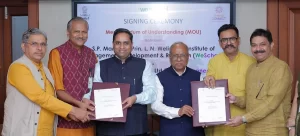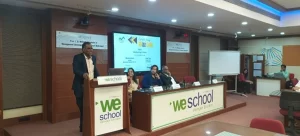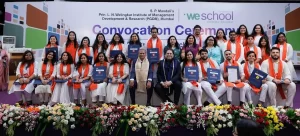” We engage influencers of each brand to drive awareness”,
says Lokesh Vishwakarma, Area Sales Manager, Pidilite
Industries
 Please tell us a little about your professional & academic background. Can you also brief us about your role in your current organization?
Please tell us a little about your professional & academic background. Can you also brief us about your role in your current organization?
Post my graduation in IT from KC College, Mumbai, I completed my PGDM from Welingkar Institute of Management, Mumbai. I have had a series of exciting experiences all along my college life, for instance, during my MBA days I was a Research Assistant for a Mumbai Based Non Profit Organization which audits the Performances of the Elected Representatives of Mumbai (MP/MLA/Councilor) based on their promises before getting elected. I was also freelancing as a guest speaker on All India Radio Show ‘YuvaVani’ where I used to passionately speak on issues facing the youth.
In 2012, I got an opportunity to do my summer project with Pidilite Industries Ltd post which the organization offered to induct me in to their Management Trainee Program and straight from the air conditioned class rooms of Mumbai, I was posted to Bihar for my Front Line Sales Training. After a successful stint in Bihar, I am now posted as an Area Sales Manager heading the Rural Operations for the state of Jharkhand.
Simply put, it is my responsibility to drive availability and awareness of our wide range of Pidilite Products in every hamlet of Jharkhand.
What is the single most important skill that you think is required to do well as a rural marketer?
I think more than any skill, success in rural depends a lot on one’s attitude towards rural. These days a lot of articles and books romanticize rural as an ultimate career option while when hit with hard realities of rural India on the ground, one does start having a change of mind. So if you are passionate about rural and are ready to walk out of your comfort zone then rural will be a great value add.
Being a city bred person, how easy or difficult was it to gain a deep understanding of the rural market?
I would be lying if I say the transition was very easy and I reveled meandering in Rural India. It is difficult but when one starts getting exposed to the magnanimity and the experience rural India offers it does becomes enjoyable.
Can you tell us about any critical project that you’ve handled and the takeaways from it?
When I took over as an ASM in Jharkhand, the territory was growing handsomely but soon I realized that our operational infrastructure was way behind other FMCG companies and if we didn’t do something about it quickly our growths would start to taper off. It was then in the month of December that me and my team undertook a massive operations of 3 months to establish and upgrade our rural infrastructure and I am proud of the fact that by the end of February, our network of hub and spokes rivaled some of the biggest FMCG companies operating in Jharkhand
Rural markets are heterogeneous in nature. What are the different product strategies adopted by you to tap different markets?
One of the key challenges of rural is driving awareness of your product, I mean you cannot just put a pan India television ad and hope that the rural consumers would be queuing up to buy your product. It is here that the role of influencers plays a very vital part. We realized that very early on and now we engage influencers in every category that we are present in. So in driving awareness for our Fevistik and Rangella range of colors we engage a lot of teachers in rural. Similarly for M seal, Dr Fixit, Terminator, Fevicol Marine, Steelgrip Tapes etc, we engage influencers of each brand to drive awareness.
What sort of a mind-set is required in order to work in smaller market areas? And what are some of the challenges associated with it?
The biggest challenge that a young graduate entering rural will face is travelling which is at times quite enervating. As we go about penetrating rural markets one has to travel deep inside rural areas and at times do night halts at places where one wonders if he will get a good night’s sleep or not. Pot holed roads, rickety public transport overflowing with passengers hanging on to dear life by holding on to rusted door handles. The heat and dust, mosquitos and unhygienic food at local dhabas can dampen the enthusiasm of the most passionate rural marketer. But then as Mr. Pradeep Kashyap, the father of Rural Marketing in India once said, ‘if we do not experience the reality of 70% of our potential consumers we will not appreciate Bharat’. There is so much to learn from these people living in harsh conditions with limited resources and lacking basic facilities like medical care and drinking water, but still being happy.







